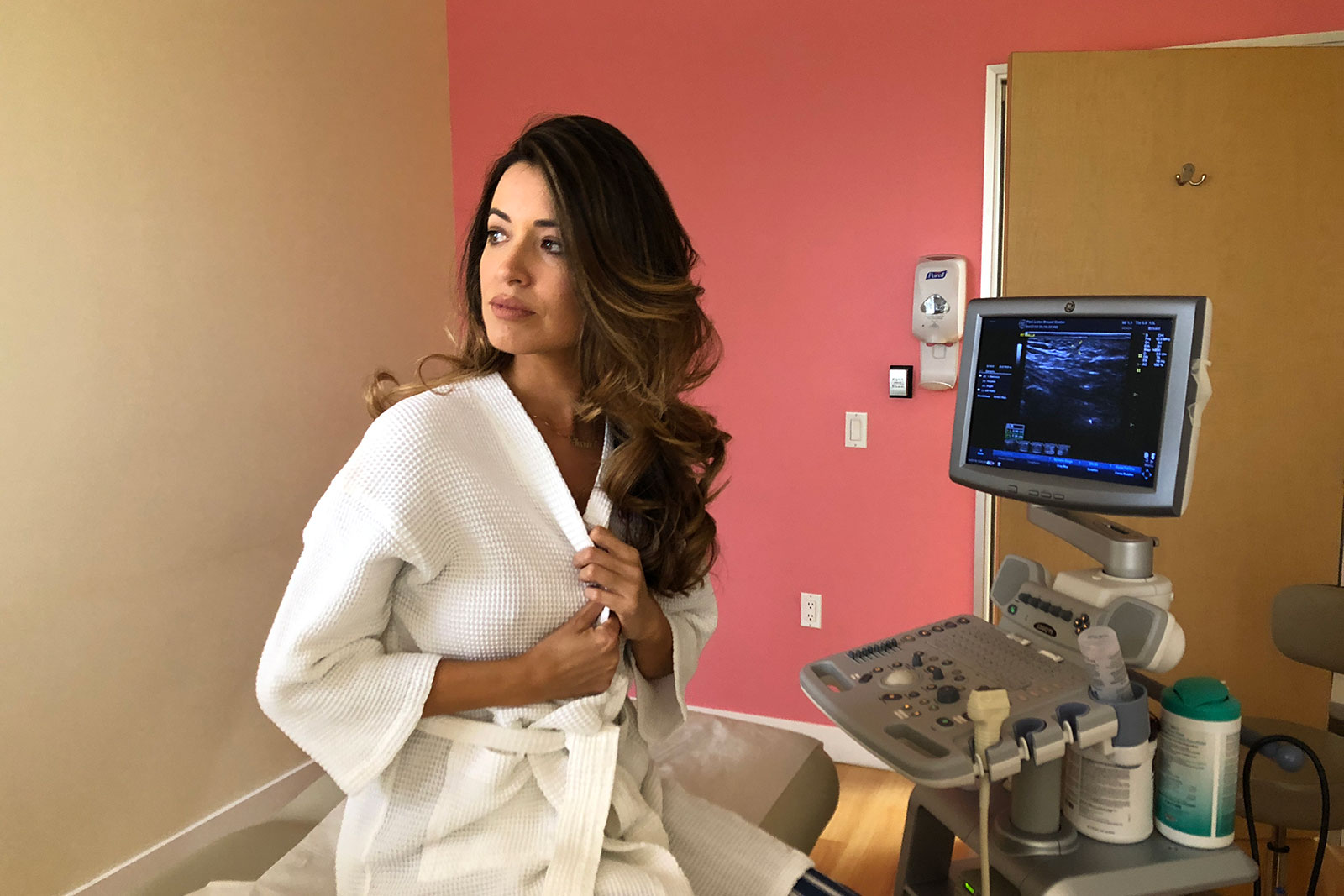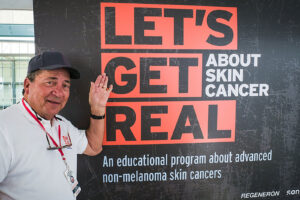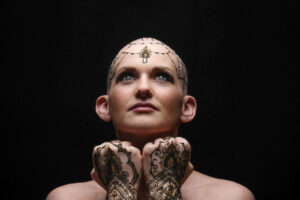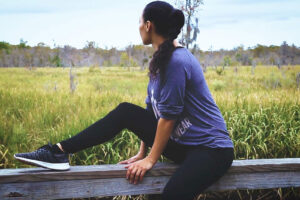Alejandra Campoverdi always trusted her intuition. The first White House Deputy Director of Hispanic Media and current women’s health advocate says her intuition had never steered her wrong. And when it came to her health, her intuition unfortunately told her breast cancer was just around the corner. Her suspicions were not random. With a long family history of breast cancer, Campoverdi was determined to take her future into her own hands. But what came next was even surprising to her.
“Breast cancer’s been constant in my family’s life for generations, so even when I was a child, that was something I was very aware of,” she says. Campoverdi’s great grandmother and grandmother died of breast cancer. When she was in her 20s, her mom was diagnosed with breast cancer and survived. Later, two of her aunts were diagnosed when Campoverdi was in her 30s. “I was always very aware that there was likely some sort of family connection, but I never thought I’d know for sure what that was,” says Campoverdi. “I was told by many doctors that I was likely high risk.”
And while her doctors may have told her she was high risk, Campoverdi credits her intuition for pushing her forward. “Intuition was a huge part of this journey for me. Kind of following my gut at every step and listening to my gut,” she recalls.
In 2013, Campoverdi heard a news report about the BRCA gene mutation. “A lightbulb went off and I thought, ‘Well, maybe this is what was going on,’” she says. After requesting a test from her doctor, she received the news—she was positive for the BRCA gene mutation.
“I always felt—whether that was intuition, whether that was putting two and two together—that I was going to develop breast cancer at some point in my life,” Campoverdi says. “So when I found out I was BRCA positive—which, it was devastating—I [also] wasn’t completely shocked.”
Based on her doctor’s recommendation, she continued to do surveillance for a few years and was told to aim for a preventative surgery 10 years before the age at which her mother had developed breast cancer.
I always felt—whether that was intuition, whether that was putting two and two together—that I was going to develop breast cancer at some point in my life.
Campoverdi’s experiences inspired her to explore the genetic connections between breast cancer and other cancer types. In 2017, she was awarded the inaugural YLC Distinguished Advocacy Award from Penn Medicine’s Basser Center for BRCA for her advocacy around BRCA-related cancers.
A year later, Campoverdi further explored the issue when production began on her documentary, “Inheritance.” Created in collaboration with director Jonathan Silvers (whose wife tested positive for the BRCA gene mutation and underwent a prophylactic double mastectomy and bilateral oophorectomy), “Inheritance” follows three women of color—Lilith Costa, Bonnie Feuerman and Campoverdi—as they navigate their personal journeys with hereditary cancer. Of course, not every subject was as proactive as Campoverdi. In the documentary, for example, Feuerman refuses to get genetic testing even though her mother died of metastatic breast cancer in her early 40s and her sister tested BRCA positive nearly a decade before. On the opposite end of the spectrum, Costa undergoes a debilitating 12-hour surgery to remove her breasts, fallopian tubes and ovaries after testing positive for a genetic mutation. Breast cancer was so prevalent in her family that even her uncle battled the disease.
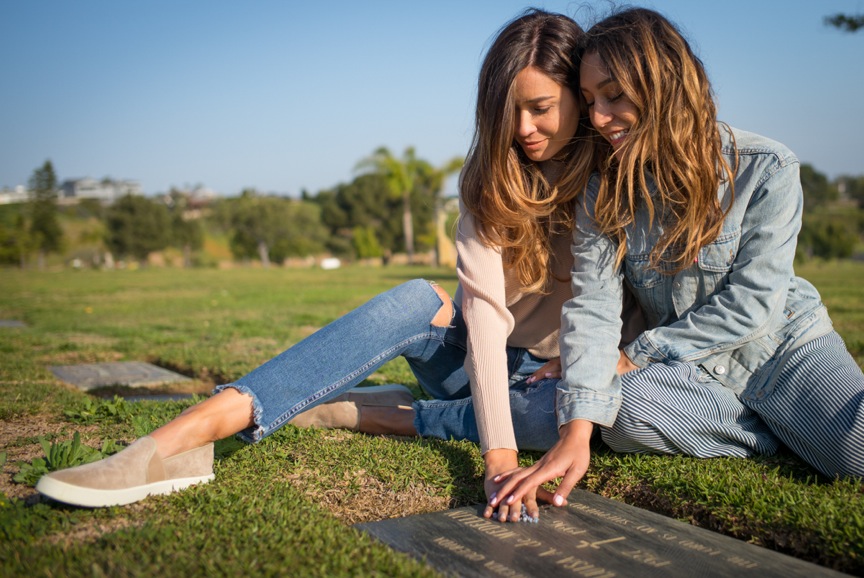
Campoverdi herself opted for a double mastectomy, a decision she says was met with some trepidation from members of her family, despite their long history of breast cancer diagnoses. In the beginning, she says, she hadn’t told anyone in her family that she decided to get the double mastectomy for fear of getting swayed out of her decision.
“I think people in my family still didn’t completely understand the way that hereditary cancer worked and that was one of the reasons why I made this film,” says Campoverdi. Physicians say hereditary cancer strikes about 10 years younger for each generation. Everyone in her family had different experiences with breast cancer but no one had done a preventative procedure. “My own inner voice was telling me, ‘You need to do this. You need to do this now,’” she says. “I wanted to explain the rationale behind my decision.”
The documentary tracked her journey, including her decision to get a bronze cast of her torso prior to the double mastectomy and the surgery itself. A few days after her surgery, doctors tested her tissue and discovered Campoverdi already had stage 0 breast cancer. “The first thing out of my mouth when the doctor told me I was positive was, ‘I know,’” she recalls. “And when I received the call from my doctor letting me know that I had actually had breast cancer, as shocking as it was, it was something I had already accepted would come to be a part of my reality. That’s why I did what I did.”
Campoverdi also says she felt simultaneously devastated and relieved by the news. She anticipated breast cancer in the future, not the present. But learning of her diagnosis also made her feel even more sure of her decisions to be proactive—rather than reactive—with her health.
Her family was shocked. Campoverdi was the first person in her family to get diagnosed with cancer in her 30s. Before her, everyone was diagnosed in their 60s. “I remember my mother telling me afterward that when I chose to do [the double mastectomy], she thought I was too young and she was not sure she agreed with my decision, but she didn’t want to tell me because she knew I had really made up my mind, which I had,” she says. “And then when she found out the news, she burst out crying and told me, ‘I’m so glad you did what you did.’”
Since learning of her cancer, two women in Campoverdi’s family have undergone preventative surgeries and had their ovaries removed. And almost everyone in her family now has been tested for BRCA. “Our family’s experience with breast cancer and cancer in general has really changed generationally,” she says.
Campoverdi also hopes documenting her experience in “Inheritance” will help other women feel secure in their choices. “My wish is for [the film’s] message of empowerment amidst stacked odds to inspire hope,” Campoverdi says. “There are always moments of light and grace, even in the most painful periods of our lives.”
“Inheritance” is available to stream on PBS. To learn more about the Well Woman Coalition, visit wellwomancoalition.com. Pod is a Woman is now available on all podcast platforms.

